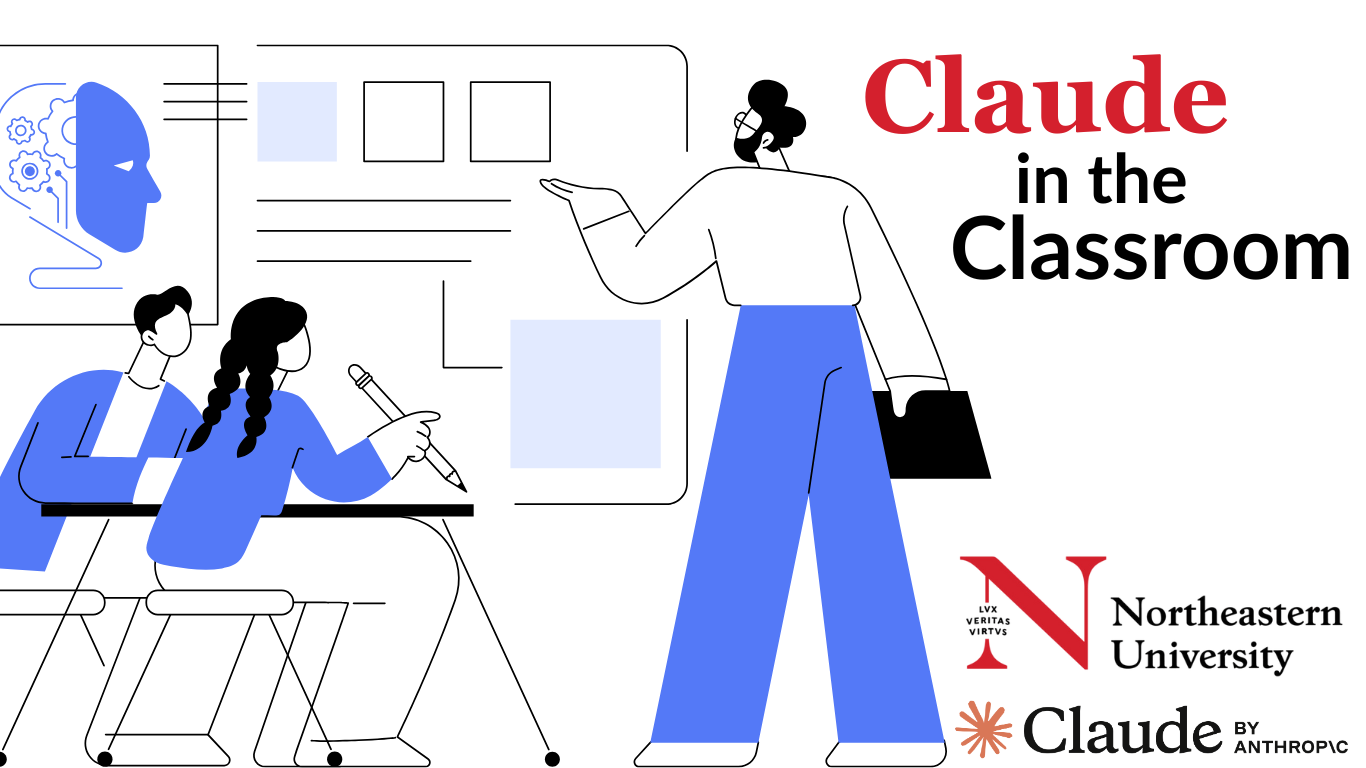Dialogue of Civilizations: Northeastern Students on AI and Climate Challenges in Thailand and Indonesia

Each summer, Auroop Ganguly, director of AI for Climate and Sustainability (AI4CaS) at the Institute for Experiential AI, leads one section of a study abroad program called Dialogue of Civilizations (DOC). The Northeastern University program provides opportunities for students in a variety of subject areas to take courses while being steeped in the culture of a host country.
Auroop’s section focuses on climate science, engineering adaptation, and policy in emerging economies. This year, students attended programs in Indonesia and Thailand, learning about climate challenges and participating in climate change “war games” meant to simulate real time disaster management.
Here, three student participants answer questions about the innovative program, the unique challenges facing the host countries, and the potential for AI to build a more sustainable planet. Don’t forget to check out our first part in this series, with responses from Auroop Ganguly.
***
Q: Why did you decide to participate in this DOC? What did you learn? How has the experience changed or developed your understanding of climate resilience, engineering, and sustainability?
Archita Ghosh: I participated in the dialogue because the idea of studying climate change and its impact within a cultural context excited me. It was enlightening to attend the guest lectures from such diverse perspectives. However, the one learning experience unlike any other was to see the effects of climate change in Indonesia (especially Jakarta) and hear from decision-makers about the different ways they are planning to combat such problems. The dialogue and programs like these can open us up to new perspectives and, as doctoral students, help us formulate interesting problem statements.
Shuochen Wang: I am a first-year doctorate student in the stage of defining a research problem, and The Dialogue of Civilizations was a great opportunity to meet people in different sectors of climate change research. I learned a lot about some topics that I was not familiar with, and they helped define an interdisciplinary problem. Through this experience, I realized that each country is facing a different climate change problem, and to tackle these problems, each country may have different approaches considering its political system, financial status, and geographical conditions. This makes me wonder how to develop generalizable climate adaptation and mitigation strategies for future research.
Danish Mansoor: I decided to participate in this DOC because of my passion for engaging with students and learning from diverse perspectives. Interacting with students from varied academic and socioeconomic backgrounds provided a unique opportunity to understand the views on climate change and economic growth in different nations. Having completed my entire education in India, this DOC allowed me to gain new insights and broaden my understanding while teaching and interacting with students and others about the interconnectedness of climate change, the economy, and historical contexts. This experience significantly enriched my academic journey, providing me with a global perspective and enhancing my ability to engage with complex, interdisciplinary issues.
Here are a few key insights I gained:
- Student Perspectives: Interacting with students in both formal and informal settings provided me with diverse perspectives on climate change, economic development, and social and cultural assets, and how these elements are interconnected. I learned how climate change disrupts this equilibrium. For instance, this year’s summer heatwaves in Thailand disproportionately impacted local and poorer populations involved in tourist-related sectors.
- Ground Realities: I was surprised to learn about the daily challenges faced by people in Indonesia and Thailand. In Indonesia, the need to buy drinking water due to poor water quality affects not only tourists but also local residents. Issues such as flooding, land subsidence, traffic congestion, and air pollution in Jakarta lead to significant displacement of people. These problems may worsen under future climate change and current unsustainable practices related to infrastructure development. This highlighted the necessity of robust engineering solutions and effective adaptation and mitigation measures.
- Ecotourism: During a dolphin-watching trip in Bali, I observed the disturbance caused by numerous boats chasing the dolphins. This experience underscored the importance of sustainable tourism practices.
This experience has significantly deepened my understanding of the intricate challenges and ground realities related to climate change. It reinforced the critical need for effective engineering solutions and sustainable practices to address environmental issues. I realized the importance of more regional-scale research, which is currently insufficient or lacking in depth.
Additionally, learning about the rich cultural heritage of Indonesia and Thailand enriched my appreciation for the diverse ways in which different communities interact with their environment. This holistic perspective has strengthened my commitment to integrating cultural sensitivity into climate resilience and sustainability initiatives.
Find out how our institute is applying AI to the world’s most pressing challenges in climate and sustainability.

.png)


